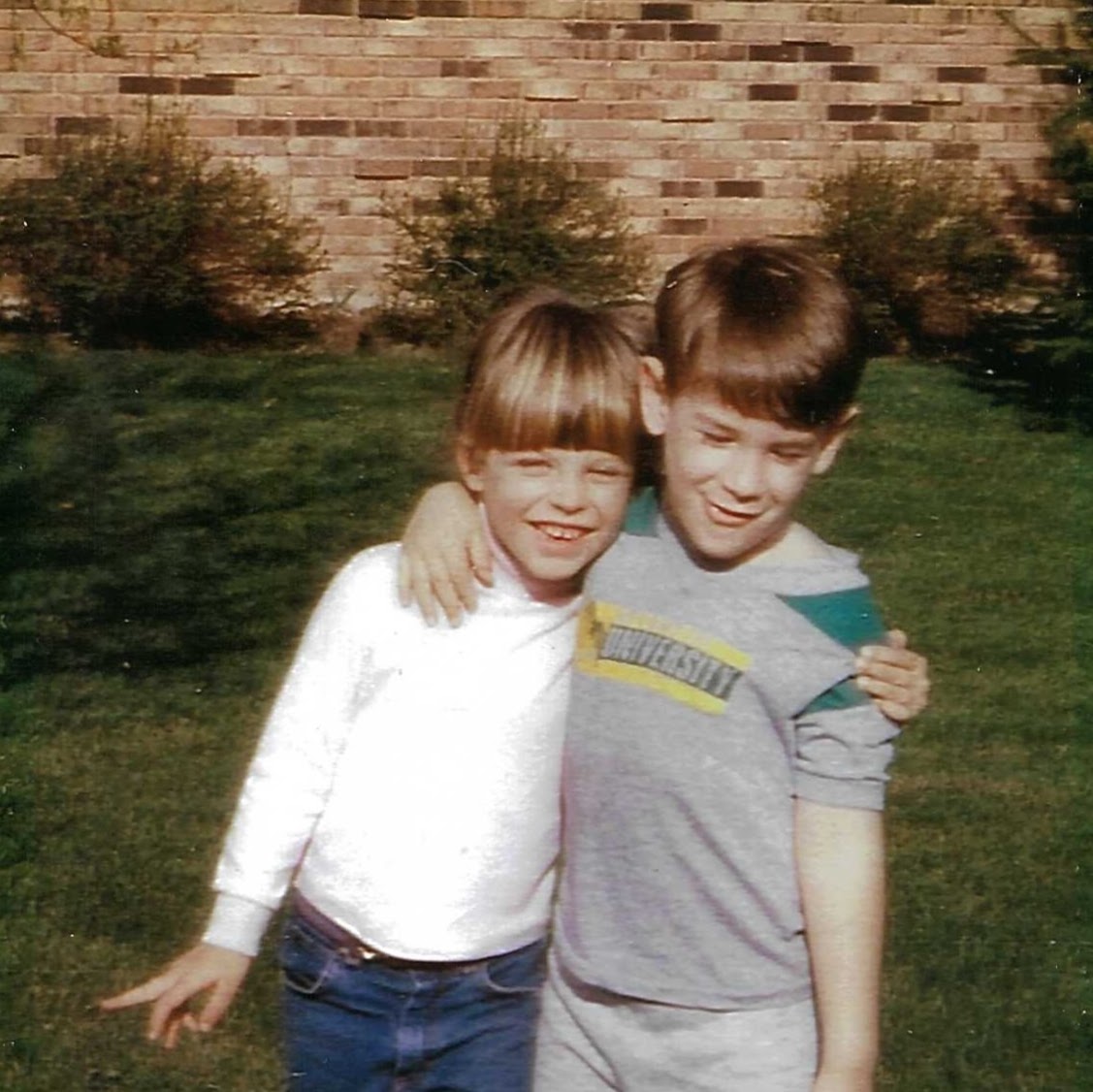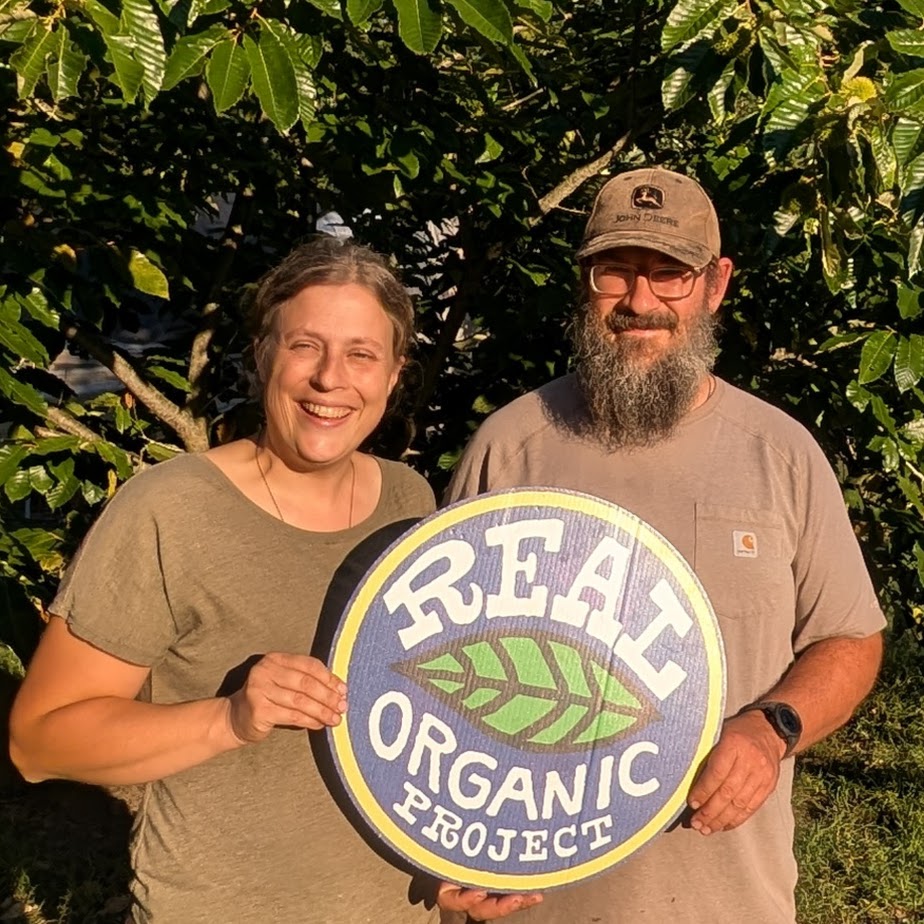Hi.
We're Paul and Nina Lukens, and we run this place. We've been digging in the dirt together for nearly 40 years (yes, the picture below is us at age five), gardening together for nearly 20, and working this land together for 10, all while juggling off-farm work and homeschooling our five kids. We love what we do.
To learn more about how we approach land stewardship generally, read about our principles.
If you have an unhealthy level of curiosity about the details of our farm, you are in luck, because we are obsessive record keepers. Take a virtual tour to explore all the areas of the farm and what we're planting in them this year.

1986
